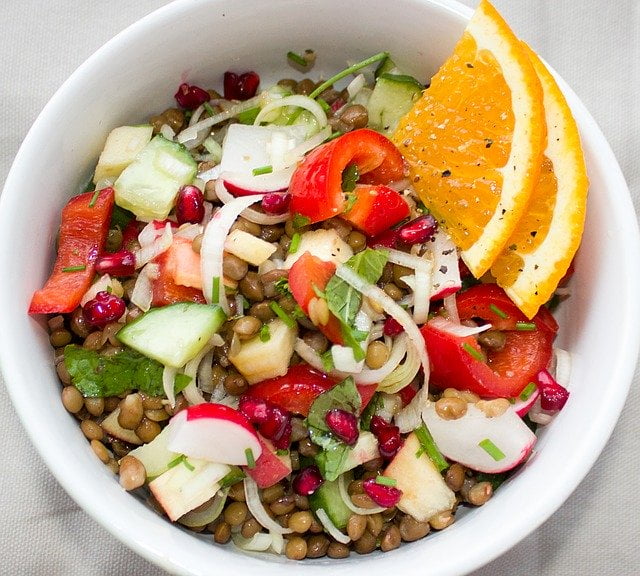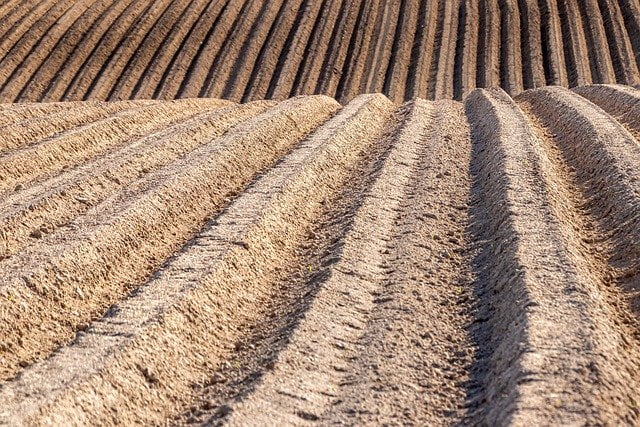
We see a lot of debate about diet and how it intersects with Yogic beliefs and values. Vegetarian and vegan Yoga retreats are the norm and many Yogis live a plant based life. Veganism has seen a huge surge in popularity recently, and events like Veganuary are having an incredible impact on public opinion. Veganism, it seems, is experiencing a rapid re-brand. Now that the environmental impact of industrial animal farming is widely known, many people’s scales are tipping in favor of a plant-fueled life. Many who would never have considered vegan living are dipping their toes into the chickpea water.
In discussions of animal rights and human freedoms, emotions run high. Things can get very dicey, very quickly when discussing Veganism online. Toes are stepped on, feelings are hurt, and tempers flare. The case for veganism is far more complex than a matter of animal rights. Food is far too interwoven into ideas of privilege, poverty, culture and morality. There are simply too many variables for a unified opinion. But we think most of the debate surrounding Veganism and Yoga comes down to two things…
1. The Difference Between A Yogi And Someone Who Practices Yoga

As Yoga teachers, we are all taught the Eightfold path. Many of you will be familiar with it and likely incorporate some aspects into your lifestyle. For those of you who are unfamiliar, the Eightfold path is a collection of writings by the sage Patanjali. These writings served to organise Yogic belief and are referred to as the Yoga Sutras. They describe a way of life that follows eight paths or ‘limbs’:
Yama – The limb concerning ethical behaviors and integrity
Niyama – The limb of ritual, commitment and self dicipline
Asana – The body postures that train the bodily temple. These are what most modern people see as the center of Yoga.
Pranayama – The limb of the mastery of breath
Pratayama – The limb of withdrawal from the senses
Dharana – The limb of concentration
Dhyana – The limb of deep meditations
Samhadhi – The limb of enlightenment and bliss
Right now we’ll be focusing on two of these concepts: Yama and Asana. Within these concepts and their modern interpretations lies the heart of the vegan Yoga debate. The problem itself is this question: Can a follower of the Eightfold Path consume animal products and still be true to its teachings? Many believe that to be a Yogi you have to follow all aspects of all limbs of the Path to remain true to it. According to Yogific all Yogis should be vegan:
“Yamas are the first and foremost thing to be taken care of. There are five Yamas: Ahimsa (non-violence), Satya (truthfulness), Asteya (nonstealing), Brahmacharya (right use of energy), and Aparigraha (nongreed or non hoarding). It is impossible to truly practice these yamas without practicing veganism.”
The argument is that to consume the product of violence is to also do violence. Yogific argue that the raising and killing of animals is antithetical to a life of non-violence, no matter if it is not the consumer who does the act. Many believe that to practice the Yama of non-greed (Aparigraha) we cannot take milk meant for animal offspring. We can neither support environmentally catastrophic animal farming practices merely for the sake of taste. To eat animal products is to deny an enormously significant part of the Yogi path. But the other problem is, as usual, a matter of semantics. Which brings us to…
2. What ‘Yoga’ Means In The Modern World

The problem here is this: the majority of people do not view Yoga as a large spiritual doctrine. Modern Yoga focuses (some would say excessively!) on the Asana. There are many reasons this could be, but the most likely is the idea of Yoga being adapted for a Western outlook. When Yoga began to gain popularity in Hollywood in the USA, for example, religious groups were highly concerned that alternative religion was hiding behind a veil of health and fitness. Yoga has, at least to the modern mind, lost many of the deeper religious connotations. To many ‘Yoga’ is simply a form of excersise, perhaps with a little light meditation. However, this is only 1/8th of what Yoga is, traditionally. And this is not mentioning the ideas of Asana and how they are intended to interact with the other limbs, as a unified body.
It all hinges on what you believe a Yogi is. Is it only someone who follows the whole Eightfold path, to the best of their ability? The term Yogi is used very loosely in modern media (we know we’re certainly guilty of this!). When we use the term, we are using it to describe anyone who participates in any of the limbs of the Path. Many may disagree with this, but we are of the belief that Yoga is something we all need to access, but to different degrees.
If you believe a true Yogi follows all of the limbs, then of course they would have to be vegan. But for many people, following the Eightfold path is merely a case of doing the best you can, when you can.
The Case For The Meat-Eating Yoga Lover
A popular Yoga Teacher and YouTuber Bad Yogi (Erin Motz) addressed the issue in a blog back in 2017, but we see the same argument crop up time and again. Bad Yogi has a more loose idea of what it is to be a Yogi, and shares our opinion that all should practice at their own discretion. She stresses adaptability, personal choice and responsible eating.

Many people who practice Yoga are meat eaters – does that mean they’re not ‘real’ students? Of course not. But many of her community practice only casually to keep healthy. As seems to be the case with more omniverous Yoga people, there are just too many questions. They had questions such as: in the case of farming behemoths, is the animal produce industry really worse, to a significant degree? What about modern slavery? The real human cost of industrial crop picking? The import of staple crops from the developing world? A humans right to nuanced moral choices?
And isn’t the true solution reduction of all industrial farming?
The problem is that all these questions and outlooks are valid, and so is the case for widespread Veganism. The case for animal cruelty and environmental impact cannot be denied. This is not an argument with a resolution. We all have to walk our own path and make our own choices. We define who we are and what drags on our conscience. All we can do is try and live as consciously as we can… in a world that really would rather we didn’t!
Do you have to be Vegan to do Yoga? No. Do you have to be vegetarian to do Yoga? No. Do you have to be Vegan to follow the Eightfold path…? Well, that’s up to you.
If you have thoughts on the subject, let us know in the comments!
Yogamasti
For more tips, tricks, meditations, news and info, like and follow us on Facebook or catch us on Instagram as @yogamasti or #yogamasti. Our followers get exclusive offers and sneak peaks, and we love talking to customers! See you soon!




